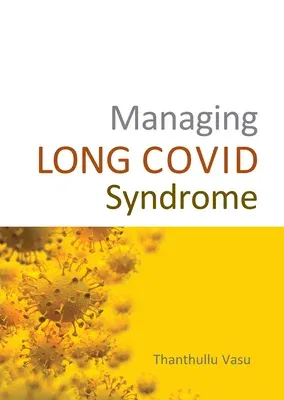Over ten percent of people infected with the COVID virus will suffer
with long COVID syndrome. Up until now, more than one million people
have been affected with this syndrome in the United Kingdom alone, and
the incidence worldwide is estimated to be more than 35 million people,
although this may be the tip of the iceberg. The World Health
Organization has highlighted a need for the "three Rs" -- Recognition,
Research and Rehabilitation.
Long COVID syndrome can be frustrating and disabling, even many months
or years after the infection; sufferers complain of fatigue, pain,
post-exertional malaise, cognitive dysfunction and many other systemic
symptoms. It can be challenging for healthcare professionals to
recognise the disease and for patients who are suffering from the
condition it can have a wide and far-reaching impact on their lives and
day-to-day activities. Being a relatively new condition, many healthcare
professionals, now more than ever, need to have the requisite knowledge
to recognise and manage this severely debilitating disease.
This book will be useful to all frontline healthcare professionals to
help diagnose, manage and direct patients to the available resources.
General practitioners, physiotherapists, pain therapists, nurses,
surgeons, physicians, junior doctors, psychologists, medical students
and other clinicians will be able to update their knowledge on long
COVID syndrome with this easy to read book. Patients will also find the
book useful to understand the basis of the disease and how they can seek
help.
This comprehensive treatise covers a wide variety of topics on long
COVID syndrome including the aetiopathogenesis, recognition, systemic
involvement, investigations, guidelines on management, available
resources, systemic management and pain/fatigue management. This book
will be handy for candidates preparing for various examinations
conducted by the Royal College of General Practitioners, UK (MRCGP),
Royal College of Anaesthetists, UK (FRCA), Faculty of Pain Medicine, UK
(FFPMRCA), College of Anaesthesiologists of Ireland (FCAI), European
Society of Anaesthesiology and Intensive Care (EDAIC), Australian and
New Zealand College of Anaesthetists (FANZCA), World Institute of Pain
(FIPP/CIPS), National Board of Examinations of India (Dip NB), and the
American and Canadian board examinations, as well as other examinations
conducted by medical boards across the globe.

